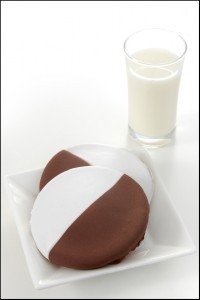Does the Economic-Loss Rule Bar Claims Under Section 75-1.1?

Ellis & Winters
The economic-loss rule says that a contract dispute generally does not state a tort claim. The concern is that if a plaintiff could recover tort damages, that outcome would disregard the expectations reflected in the parties’ contract. The rule comes up most often when plaintiffs seek to recover only the value of a product that turned out to be defective.
This background leads to an important question: does the economic-loss rule bar claims under N.C. Gen. Stat. § 75-1.1? Courts have often said that section 75-1.1 claims are partly contractual, but partly tort-based. Does the tort aspect of a 75-1.1 claim mean that the economic-loss rule defeats such a claim? Or does the contractual aspect of a 75-1.1 claim mean that the claim survives?
If you’re defending against a 75-1.1 claim that has a contract in the background, you might argue that you win regardless of how one characterizes the claim:
- If the 75-1.1 claim is considered a tort claim, the economic-loss rule bars the claim.
- If, on the other hand, the 75-1.1 claim is considered a variation on a claim for breach of contract, the claim fails for lack of substantial aggravating circumstances.
At least two federal courts in North Carolina have used this double-edged reasoning to reject 75-1.1 claims in products-liability cases. One of those decisions has been affirmed by the Fourth Circuit, but the Fourth Circuit’s opinion addresses only the “no substantial aggravating circumstances” issue. Here is a recent article that I wrote on this Fourth Circuit decision.
Just last month, however, a different federal court—in California—ruled that the economic-loss rule doesn’t bar claims under section 75-1.1.
In In re MyFord Touch Consumer Litigation, No. C-13-3072, 2014 WL 2451291 (N.D. Cal. May 30, 2014), a putative class of plaintiffs from fifteen states sued Ford over alleged defects in the touchscreen system in Ford vehicles. The plaintiffs claimed only economic losses; they had not experienced any bodily injuries. The North Carolina class representative claimed that when Ford misrepresented the features of the touchscreen system, it committed fraud, a breach of warranties, and violations of section 75-1.1.
Ford moved to dismiss these claims. It argued (among other points) that the economic-loss rule barred the section 75-1.1 claim. The court, however, held that the economic-loss rule did not bar the claim.
The court began by pointing out that no North Carolina state court had ruled expressly on whether the economic-loss rule bars section 75-1.1 claims. Thus, the federal court had the authority to make its own holding on the content of North Carolina law. Applying this authority, the court held that section 75-1.1 “gives rise to a duty independent of the contract and therefore should not be barred by the economic loss rule.”
Regardless of what one thinks of this ruling on its merits, it is troubling as a matter of Erie doctrine. According to the case law after Erie, when a federal court must identify the content of state law, the court should predict how the relevant state supreme court would rule in a similar case.
Here, the federal court missed a signal from the North Carolina Supreme Court that the economic-loss rule bars contract-related claims under section 75-1.1. In Coker v. DaimlerChrysler Corp., 360 N.C. 398, 627 S.E.2d 461 (2006) (per curiam), the supreme court affirmed the dismissal of a similar “no injury” putative class action under section 75-1.1.
When the North Carolina Court of Appeals had reviewed Coker, then-Judge Hudson had written an extensive dissenting opinion. She reasoned that section 75-1.1 claims “are exempt from the economic loss rule because the rule is judicial, not legislative, and must give way” to section 75-1.1. She went on to call section 75-1.1 a “specific legislative policy pronouncement allowing damages for economic loss.”
When the Coker plaintiffs asked the North Carolina Supreme Court to reverse the dismissal of their section 75-1.1 claim, they echoed then-Judge Hudson’s arguments. The supreme court, however, affirmed the dismissal.
In last month’s MyFord case, the federal court in California simply overlooked the North Carolina Supreme Court’s decision in Coker. The federal court quoted the dissenting opinion in the court of appeals in Coker as a source of North Carolina law. The federal court, however, did not address the later history of the case in the North Carolina Supreme Court. Given that the federal court’s job under Erie was to predict the eventual ruling of the North Carolina Supreme Court, the court overlooked a big data point when it missed the supreme court’s rejection of the plaintiffs’ arguments on the economic-loss rule.
In sum, the MyFord decision shows that the application of the economic-loss rule to section 75-1.1 claims is not completely settled. It won’t be settled until the North Carolina Supreme Court issues an opinion on this issue.


